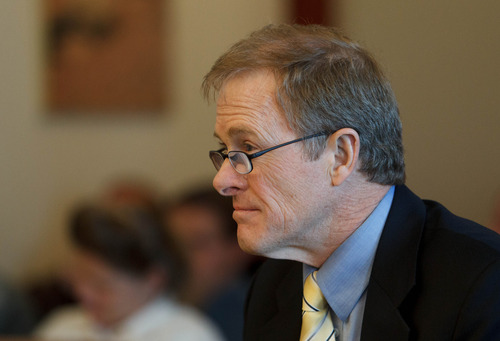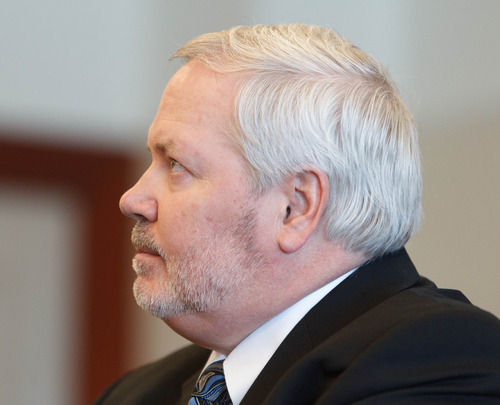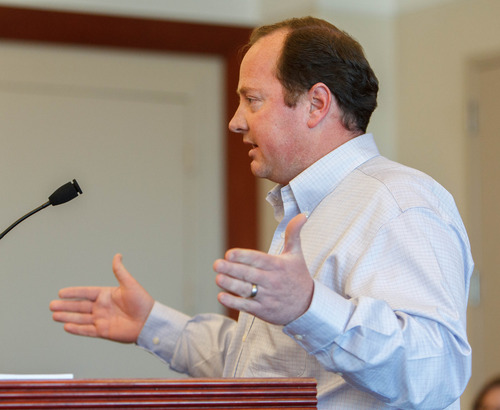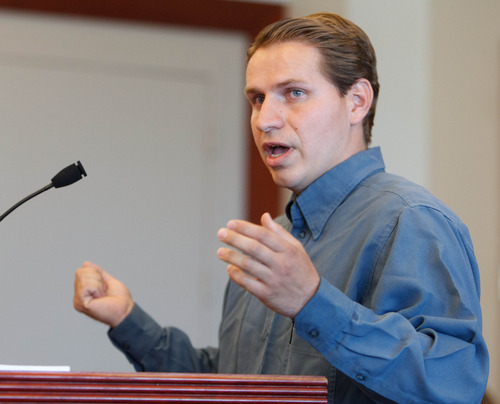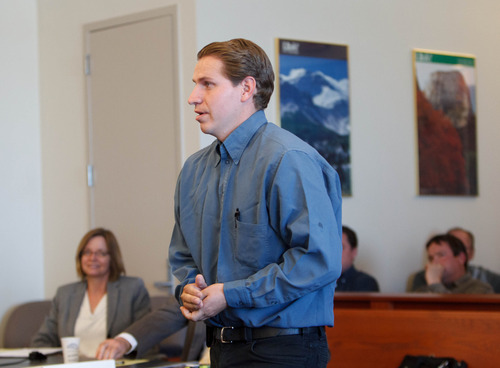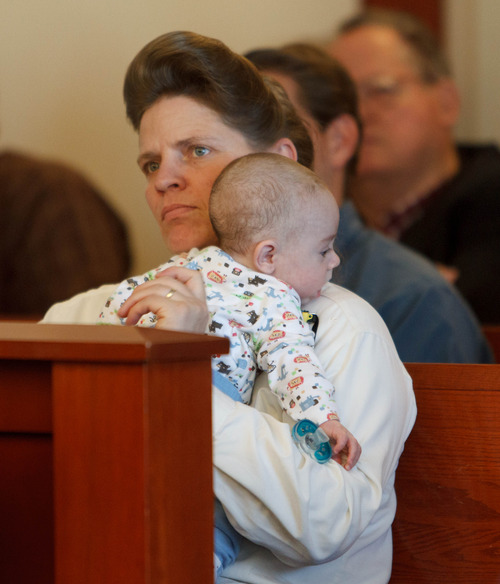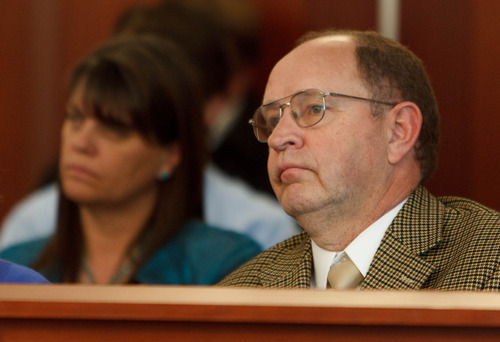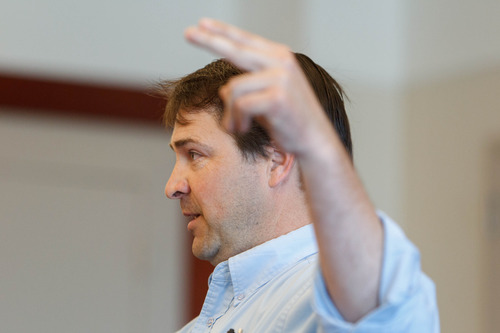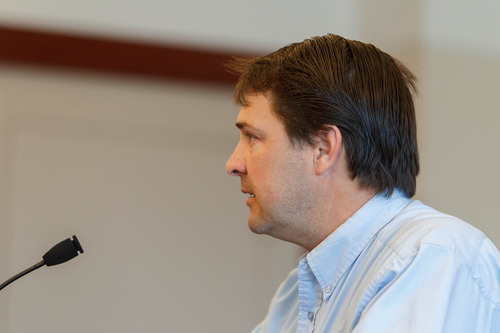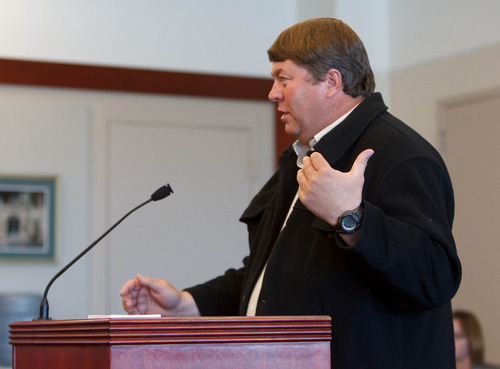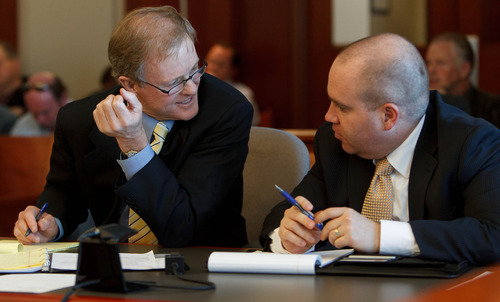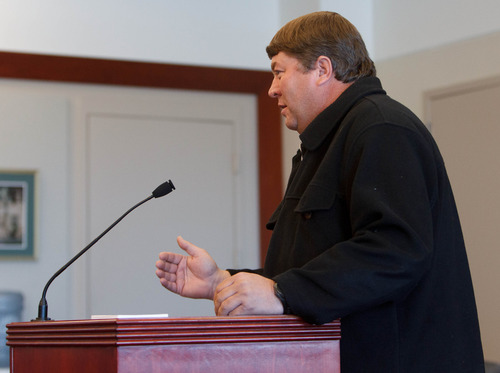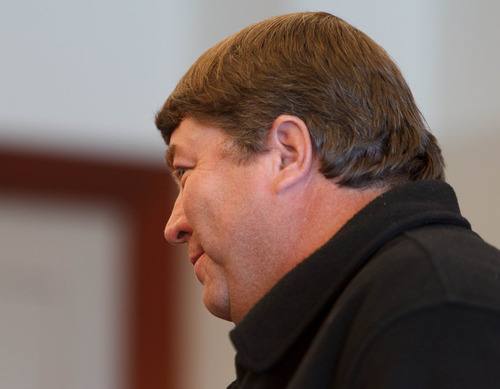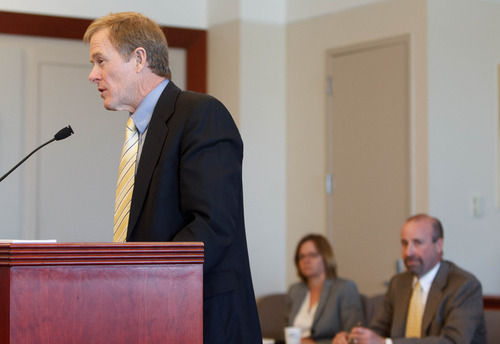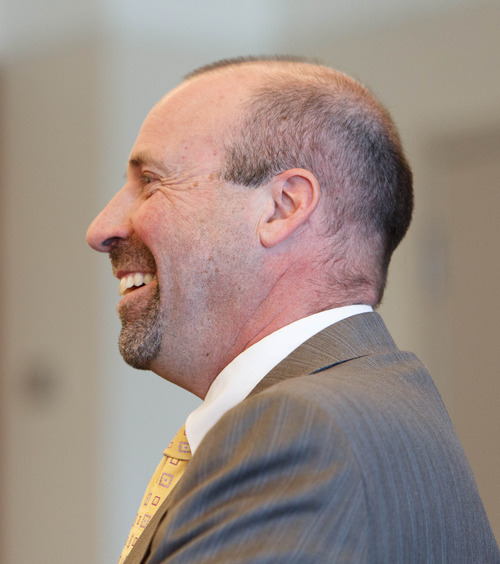This is an archived article that was published on sltrib.com in 2013, and information in the article may be outdated. It is provided only for personal research purposes and may not be reprinted.
In front of a judge in a packed courtroom, attorneys on Friday announced a plan to untangle Utah from a polygamous trust.
During a two-hour hearing, attorney Jeff Shields revealed the Utah Attorney General's Office has drafted a proposal to find a new board of trustees for the United Effort Plan (UEP). Shield's represents the Bruce Wisan, an accountant who was appointed in 2005 to oversee the multi-million dollar UEP.
The written proposal was a collaborative effort between lawyers in the Utah and Arizona attorney general offices, as well as representatives from Wisan's office. It calls for the appointment of five, seven or nine people who will administer the trust "expeditiously and in good faith." Would-be trustees also must be able to act impartially and prudently, according to the proposal, and administer it "solely in the interests of the beneficiaries."
Assistant Utah Attorney General David Wolf added Friday that trustees can be anyone, as long as they can act "independently and in the best interest of the trust."
The proposal was filed Friday and has not yet been approved by 3rd District Court Judge Denise Lindberg. But if the judge approves it, attorneys estimate it will take 175 days to find trustees. The nearly six-month time frame is a result of the process outlined for choosing the trustees. The proposal states that trustees must apply for the position then undergo judicial review and background checks, among other things. The public will later have an opportunity to comment on the potential trustees and, finally, the judge will make the ultimate selection.
Once chosen, the trustees would oversee and administer UEP assets.
The UEP is a trust founded by the polygamous Fundamentalist Church of Jesus Christ of Latter-day Saints. The state took over the trust and appointed Wisan over concerns about mismanagement. The trust owns much of the property, including numerous occupied houses, in the twin polygamous towns of Hildale, Utah, and Colorado City, Ariz. Beneficiaries include members and former members of the FLDS church.
The proposal is a significant step forward for the trust. For years, various interested parties have struggled with how to end the government's involvement and even earlier this year an array of exit strategies remained on the table.
Lindberg was careful Friday to preface discussion of the proposal with phrases like "if it works." The case could still be resolved in another way if finding a new board fails.
In the meantime, Wisan will continue managing the trust. To make that possible, the state legislature recently turned over $3 million to Wisan, who hasn't been paid in years. The money is part of a total of $5.6 million that the state will ultimately pay out over the course of a year. Wisan will have to repay most of that money using revenue from the trust. He plans to generate revenue by collecting $100 a month in occupancy fees from people living in trust-owned homes, and by selling trust property.
Shields said in court that there are no plans to sell occupied residential property. However, Wisan may sell unoccupied and commercial land. Shields also revealed there are no longer any potential buyers for the Berry Knoll Farm, which FLDS church members consider sacred, but someone may be interested in purchasing Harper Farm, another UEP property.
People who refuse to pay their fees and taxes could face eviction.
Both Shields and Wolf delivered their comments to a packed courtroom Friday. Spectators — many of whom had traveled from southern Utah for the hearing — included William E. Jessop and his wife Joanna. Jessop, who has become the leader of a few hundred FLDS who no longer follow imprisoned leader Warren Jeffs, sat quietly throughout the hearing and left shortly after it ended.
But other spectators were more vocal. Just as the proceedings seemed to be winding down, former FLDS spokesman Willie Jessop rose from the back of the room and asked to address Lindberg. For the next several minutes, Jessop described the southern Utah polygamous communities as a "society in crisis" and asked to move the case along quickly so as not to expend more resources.
Other spectators who spoke during the hearing included Hildale resident Guy Timpson, who asked that the trust return to the control of the community.
Friday's hearing also provided Shields with an opportunity to update Lindberg on other issues. Among the more significant things he mentioned was that in the last two months residents in the polygamous towns have paid $600,000 in property tax, about half of what is owed.
In addition, Shields and Wolf both said that they agree that subdividing the properties community is a high priority. Existing homes currently occupy the same lots; subdividing those lots will put each home on its own parcel.
The next hearing in the case is scheduled for July 12. The process of finding new trustees will not begin before that date.
Twitter: @jimmycdii


